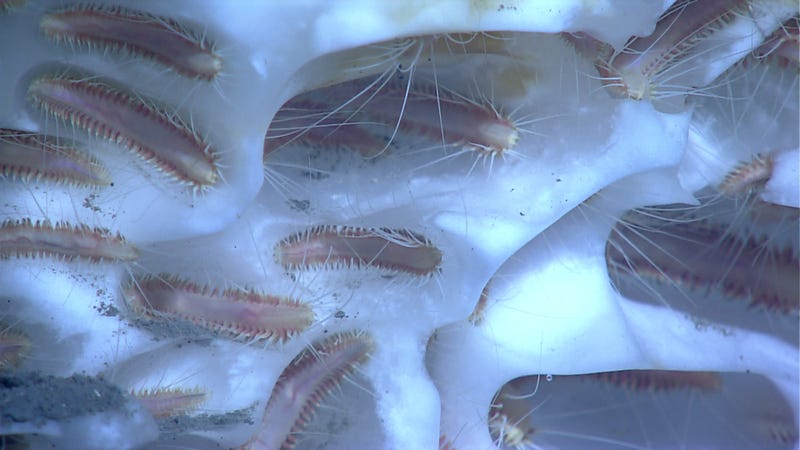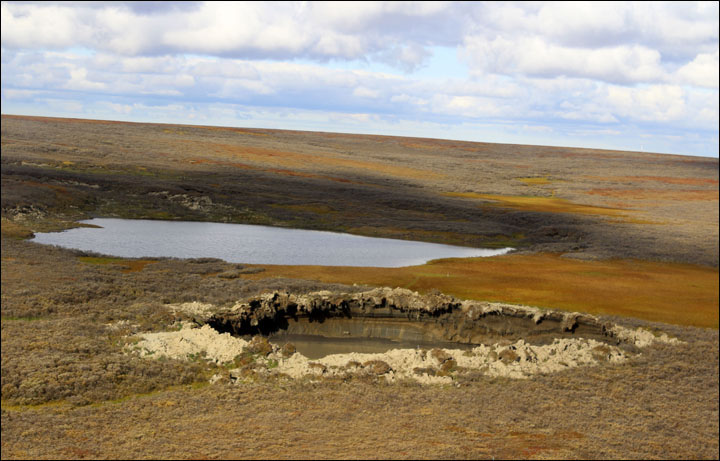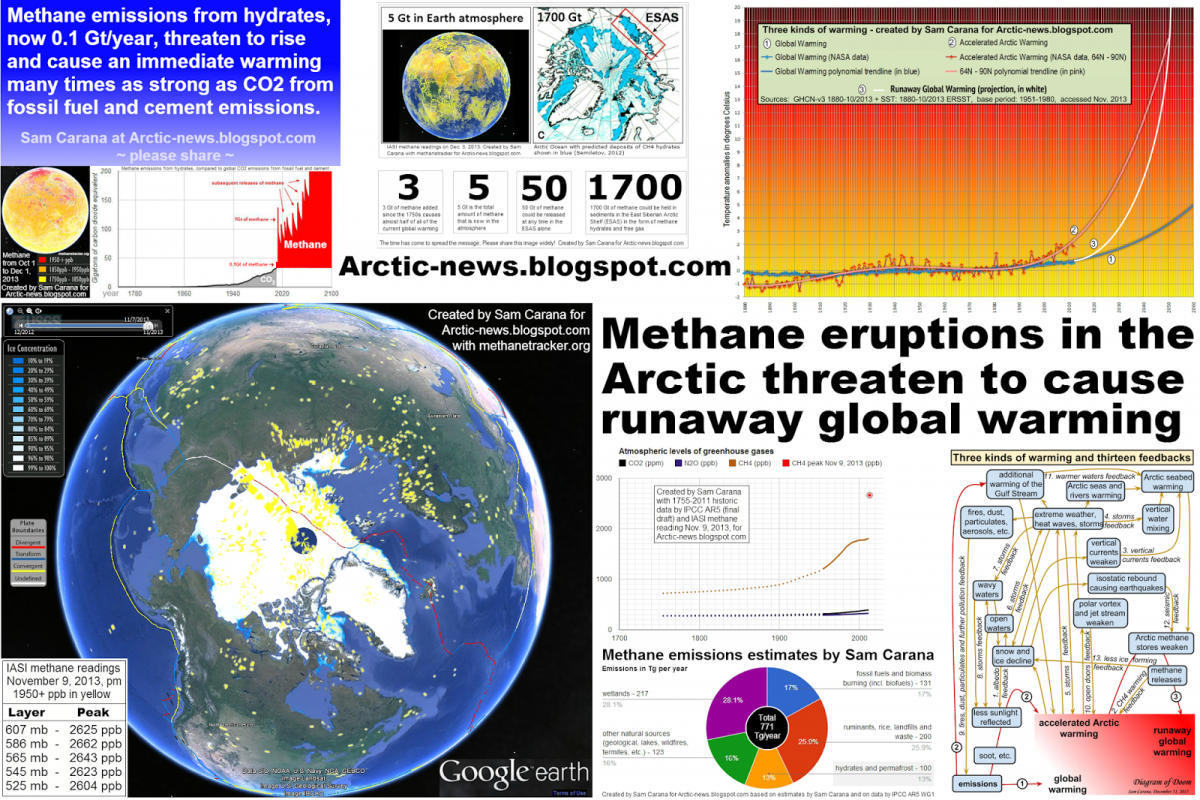You are here
Sat, 2014-02-22 07:57 — mdmcdonald
Methane venting in the Arctic appears to have dramatically increased between February 2013 and February 2014. This appears to have been created by rising sea water temperatures that have changed the behavior of the Gulf Stream and Jet Stream. There is a concern that these phenomena will create rapid irreversible changes in the atmosphere and biosphere. If the current trend continues, the human condition globally may be dramatically changed to negative in a matter of years to decades.
Add Content to this group
Members
| Kathy Gilbeaux | mdmcdonald | testing2 |
Email address for group
arctic-methane-venting@m.resiliencesystem.org









 noaa.gov - July 10, 2012
noaa.gov - July 10, 2012
Recent Comments